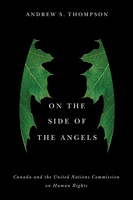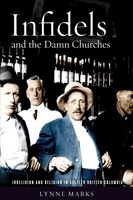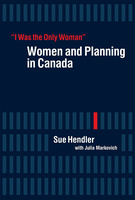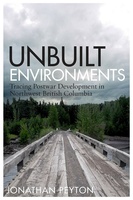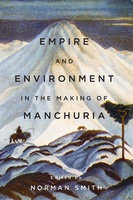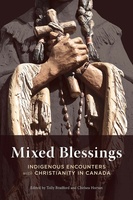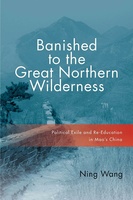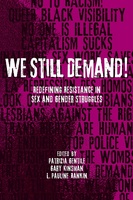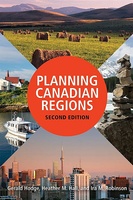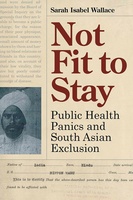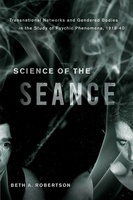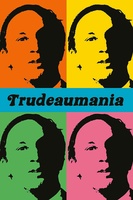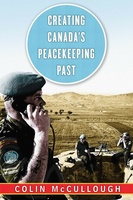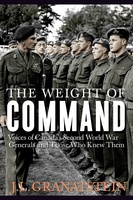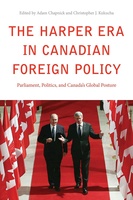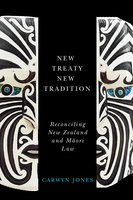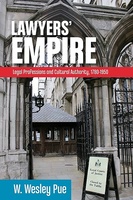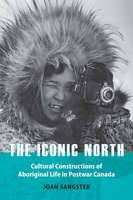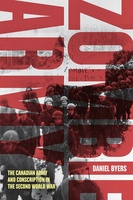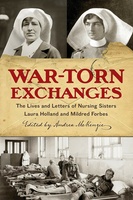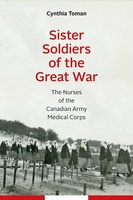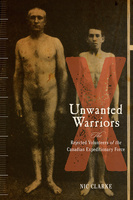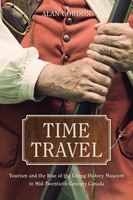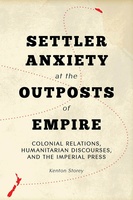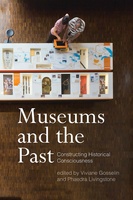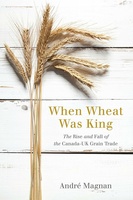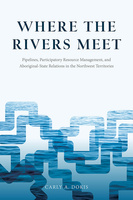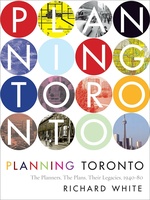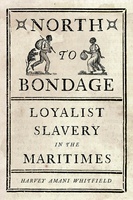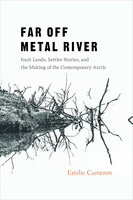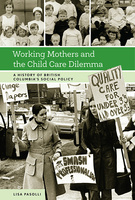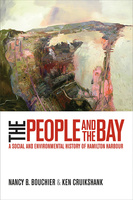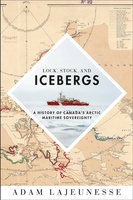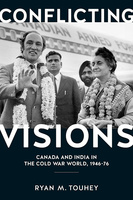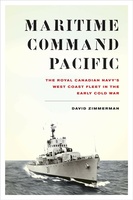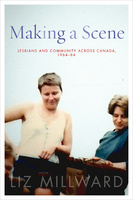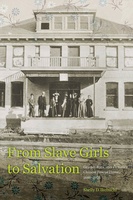On the Side of the Angels
Canada and the United Nations Commission on Human Rights
Documenting six decades of Canadian engagement within the UN human rights system, this book offers insights into the complexity and nuance of Canadian diplomacy as well as the evolution of UN’s universal human rights project.
Infidels and the Damn Churches
Irreligion and Religion in Settler British Columbia
The first major historical study of secularism in Canada, Infidels and the Damn Churches traces the origins of irreligion in BC to the unique character of the region’s settler society.
“I Was the Only Woman”
Women and Planning in Canada
A compelling new perspective on Canada’s planning history that offers a counter-narrative to the “official” story of the profession, one that has generally overlooked the contributions of women and the Community Planning Association of Canada.
Turning Point 1917
The British Empire at War
A panoramic view of the British Empire during the most pivotal and dynamic twelve months of the Great War.
Unbuilt Environments
Tracing Postwar Development in Northwest British Columbia
This book looks at the long-term social and environmental effects of imagined, abandoned, and failed resource-development schemes in northwest British Columbia.
Empire and Environment in the Making of Manchuria
This unique analysis of Manchuria’s environmental history provides an overview of the climatic and imperialist forces that have shaped an area of ongoing geopolitical importance.
Mixed Blessings
Indigenous Encounters with Christianity in Canada
This diverse and cutting-edge collection offers fresh insights into the complex and charged subject of Indigenous encounters with Christianity in Canada from the 1600s to the present day.
Banished to the Great Northern Wilderness
Political Exile and Re-education in Mao’s China
Through newly accessed labour farm archives and recently uncovered Chinese-language sources, this book brings to life the experience of political exiles in Mao’s China.
My Decade at Old Sun, My Lifetime of Hell
My Decade at Old Sun, My Lifetime of Hell is a simple and outspoken account of the sexual and psychological abuse that Arthur Bear Chief suffered during his time at Old Sun Residential school in Gleichen on the Siksika Nation.
We Still Demand!
Redefining Resistance in Sex and Gender Struggles
By challenging the erasure of radical histories, this book makes an invaluable contribution to remembering and rethinking Canadian sex and gender activism from the 1970s to the present.
Planning Canadian Regions, Second Edition
This much-anticipated second edition builds on lessons learned from the past and links them to current trends already shaping the future of regional planning in Canada.
Not Fit to Stay
Public Health Panics and South Asian Exclusion
Not Fit to Stay reveals how officials used panic about public health concerns as a basis for excluding early twentieth-century South Asian immigrants from entering Canada and the United States.
Science of the Seance
Transnational Networks and Gendered Bodies in the Study of Psychic Phenomena, 1918-40
In this enthralling study of the ethereal, the scientific, and the strange, Beth A. Robertson investigates the gendered world of the seance, a place where self-proclaimed “psychic researchers” laid claim to objectivity and where spiritual mediums and the spirits they channeled resisted their methods.
Trudeaumania
This book examines the origins, dynamics, and enduring significance of Trudeaumania, which swept Canada’s political and cultural landscape in the late 1960s.
Engaging the Line
How the Great War Shaped the Canada–US Border
Engaging the Line explores how the First World War forever changed the Canada–US border by examining reactions to increasingly strict security measures in six adjacent border communities.
Creating Canada’s Peacekeeping Past
Creating Canada’s Peacekeeping Past delves into diverse representations of Canadian peacekeeping, including National Film Board documentaries, political rhetoric, and high school textbooks to show how peacekeeping became a symbol of Canadian national identity in both French and English Canada.
The Weight of Command
Voices of Canada’s Second World War Generals and Those Who Knew Them
The senior Canadian officers of the Second World War learned how to fight a war on the job; for all of them, the weight of command was a burden to be borne.
The Harper Era in Canadian Foreign Policy
Parliament, Politics, and Canada’s Global Posture
The first comprehensive analysis of Canadian foreign policy during the Harper era.
New Treaty, New Tradition
Reconciling New Zealand and Maori Law
Maori author and legal scholar Carwyn Jones provides a nuanced analysis, enhanced by storytelling, of the New Zealand land claims process to draw attention to the cultural implications of Indigenous self-determination, settlement negotiations, and reconciliation projects around the globe.
White Settler Reserve
New Iceland and the Colonization of the Canadian West
This innovative history of a reserve for Icelandic settlers connects the dots between immigration and Indigenous dispossession in western Canada.
Lawyers’ Empire
Legal Professions and Cultural Authority, 1780-1950
In approaching the history of the legal professions through the lens of cultural history, Wes Pue locates the legal profession within England and its empire, supplementing and disrupting established narratives of professionalism as proffered by lawyers and their critics.
From Left to Right
Maternalism and Women’s Political Activism in Postwar Canada
This fresh look at Canadian women’s political engagement during the Cold War reveals that whether they were on the “left” or “right” end of the political spectrum, women were motivated by similar concerns and the desire to forge a new vision for their nation.
The Iconic North
Cultural Constructions of Aboriginal Life in Postwar Canada
The Iconic North explores how the “modern” South crafted cultural images of a “primitive” North that reflected its own preconceived notions and social, political, and economic interests.
Zombie Army
The Canadian Army and Conscription in the Second World War
This book tells the story of more than 150,000 Canadians who were subjected to conscription during the Second World War, and how their experiences shaped and were shaped by the decisions of the generals and politicians who guided the country’s war effort.
War-Torn Exchanges
The Lives and Letters of Nursing Sisters Laura Holland and Mildred Forbes
This vivid portrait of female friendship follows two Canadian nursing sisters who endured the trauma and privations of the Great War.
Sister Soldiers of the Great War
The Nurses of the Canadian Army Medical Corps
Award-winning author Cynthia Toman brings to life the experiences of Canada’s first women soldiers – nursing sisters who served during the First World War.
The Secular Northwest
Religion and Irreligion in Everyday Postwar Life
This pioneering look at secularism in the postwar Pacific Northwest looks at how the region’s non-religious inhabitants consciously rejected the trappings of organized religion and set out on their own spiritual – or non-spiritual – paths.
Unwanted Warriors
Rejected Volunteers of the Canadian Expeditionary Force
This book uncovers the history of Canada’s first casualties of the Great War – men who tried to enlist, were deemed “unfit for service,” and then lived with shame, guilt, and ostracism.
Time Travel
Tourism and the Rise of the Living History Museum in Mid-Twentieth-Century Canada
This fascinating look at Canada’s living history museums – pioneer villages and old forts where actors recreate the past – shows how they reveal as much about Canadian post-war interests as they do about settler history.
Settler Anxiety at the Outposts of Empire
Colonial Relations, Humanitarian Discourses, and the Imperial Press
A fascinating look at how humanitarian language was used by the colonial press in New Zealand and on Vancouver Island to justify ongoing settler expansion while allaying fears of Indigenous resistance.
The Call of the World
A Political Memoir
In this fiercely intelligent memoir, Bill Graham – Canada’s minister of foreign affairs and minister of defence during the tumultuous years following 9/11 – takes us on a personal journey through a period of upheaval in global and domestic politics, arguing that global institutions based on international law offer the best hope for a safer, more prosperous, and just world.
Fragile Settlements
Aboriginal Peoples, Law, and Resistance in South-West Australia and Prairie Canada
Fragile Settlements compares the historical processes through which British colonial authority was asserted over Indigenous people in southwest Australia and prairie Canada from the 1830s to the early twentieth century.
Museums and the Past
Constructing Historical Consciousness
This vibrant examination of the museum’s role as contemporary narrator of our past reveals that our perceptions of history and ourselves are shaped as much by how a museum presents information as by what information it presents.
When Wheat Was King
The Rise and Fall of the Canada-UK Grain Trade
By tracing the rise and controversial fall of the Canadian Wheat Board, Magnan reveals how trade, international relations, and food politics have influenced the grain industry in prairie Canada, the UK, and around the world.
Where the Rivers Meet
Pipelines, Participatory Resource Management, and Aboriginal-State Relations in the Northwest Territories
An examination of Sahtu Dene participation in the assessment of the Mackenzie Gas pipeline and other resource extraction projects, this book provides an in-depth account of the workings and effects of participatory environmental assessment in the Canadian North and its implications for the legitimization of resource co-management.
Planning Toronto
The Planners, The Plans, Their Legacies, 1940-80
This lavishly illustrated book will stand as the definitive history of Toronto postwar planning and of the impact that planning has had on the city and its surrounding metropolitan area.
North to Bondage
Loyalist Slavery in the Maritimes
The first history of black slavery in the Maritimes, North to Bondage is a startling corrective to the enduring myth of Canada as a land of freedom at the end of the Underground Railroad.
Far Off Metal River
Inuit Lands, Settler Stories, and the Making of the Contemporary Arctic
Drawing on the story of the 1771 Bloody Falls massacre, human geographer Emilie Cameron explores the relationship between stories and colonialism, challenging readers to examine their perceptions of the contemporary Arctic and its peoples.
Working Mothers and the Child Care Dilemma
A History of British Columbia’s Social Policy
As a deeply researched history, Working Mothers and the Child Care Dilemma reveals how, for over 100 years, a persistent political uneasiness with the role of mothers in the workforce has contributed to the lack of affordable, quality child care services in British Columbia.
The People and the Bay
A Social and Environmental History of Hamilton Harbour
This engaging history brings to life the personalities and power struggles that shaped how Hamiltonians used their harbour and, in the process, invites readers to consider how moral and political choices being made about the natural world today will shape the cities of tomorrow.
Lock, Stock, and Icebergs
A History of Canada’s Arctic Maritime Sovereignty
Lock, Stock, and Icebergs recounts the events, pressures, and behind-the-scenes negotiations that shaped Canada’s legal claim to the Northwest Passage and the waters of the Arctic Archipelago.
Hearts and Mines
The US Empire’s Culture Industry
A fascinating look at the symbiotic relationships between the US security state and the US culture industry, and their drive to promote the US Empire as a way of life through the production, packaging, and selling of cultural commodities in world markets.
Conflicting Visions
Canada and India in the Cold War World, 1946-76
Conflicting Visions recounts the Cold War history of Canada’s turbulent diplomatic relationship with India, from India’s independence through to its controversial emergence as a nuclear power, using Canadian technology to help build its first nuclear device.
A Town Called Asbestos
Environmental Contamination, Health, and Resilience in a Resource Community
In A Town Called Asbestos, a mining town’s proud and painful history is unearthed to reveal the challenges a small resource community faced in a globalized world.
The Teacher and the Superintendent
Native Schooling in the Alaskan Interior, 1904-1918
Maritime Command Pacific
The Royal Canadian Navy’s West Coast Fleet in the Early Cold War
One of Canada’s leading military historians recounts the story of the Canadian navy’s Pacific fleet during the tense years of the early Cold War.
Making a Scene
Lesbians and Community across Canada, 1964-84
A celebratory history of how lesbians “made a scene” by creating places and opportunities to form relationships, debate politics, and build their own culture across Canada.
From Slave Girls to Salvation
Gender, Race, and Victoria’s Chinese Rescue Home, 1886-1923
A fascinating and critical study of the Chinese Rescue Home, an iconic institution in Victoria, BC, where members of the Women’s Missionary Society taught domestic skills to Chinese and Japanese women believed to be prostitutes, slave girls, or to be at risk of falling into these roles.
Beyond Testimony and Trauma
Oral History in the Aftermath of Mass Violence
By challenging the ways that survivors of mass violence are typically understood as either eyewitnesses to history or victims of it, the contributors to this volume ask us to go “beyond testimony” to embrace sustained listening and collaborative research design.
So They Want Us to Learn French
Promoting and Opposing Bilingualism in English-Speaking Canada
So They Want Us to Learn French examines how and why Canadians both embraced and virulently opposed the ideal of personal bilingualism over the past fifty years, detailing and analyzing the strategies that social movements on both sides used to advance their goals.

